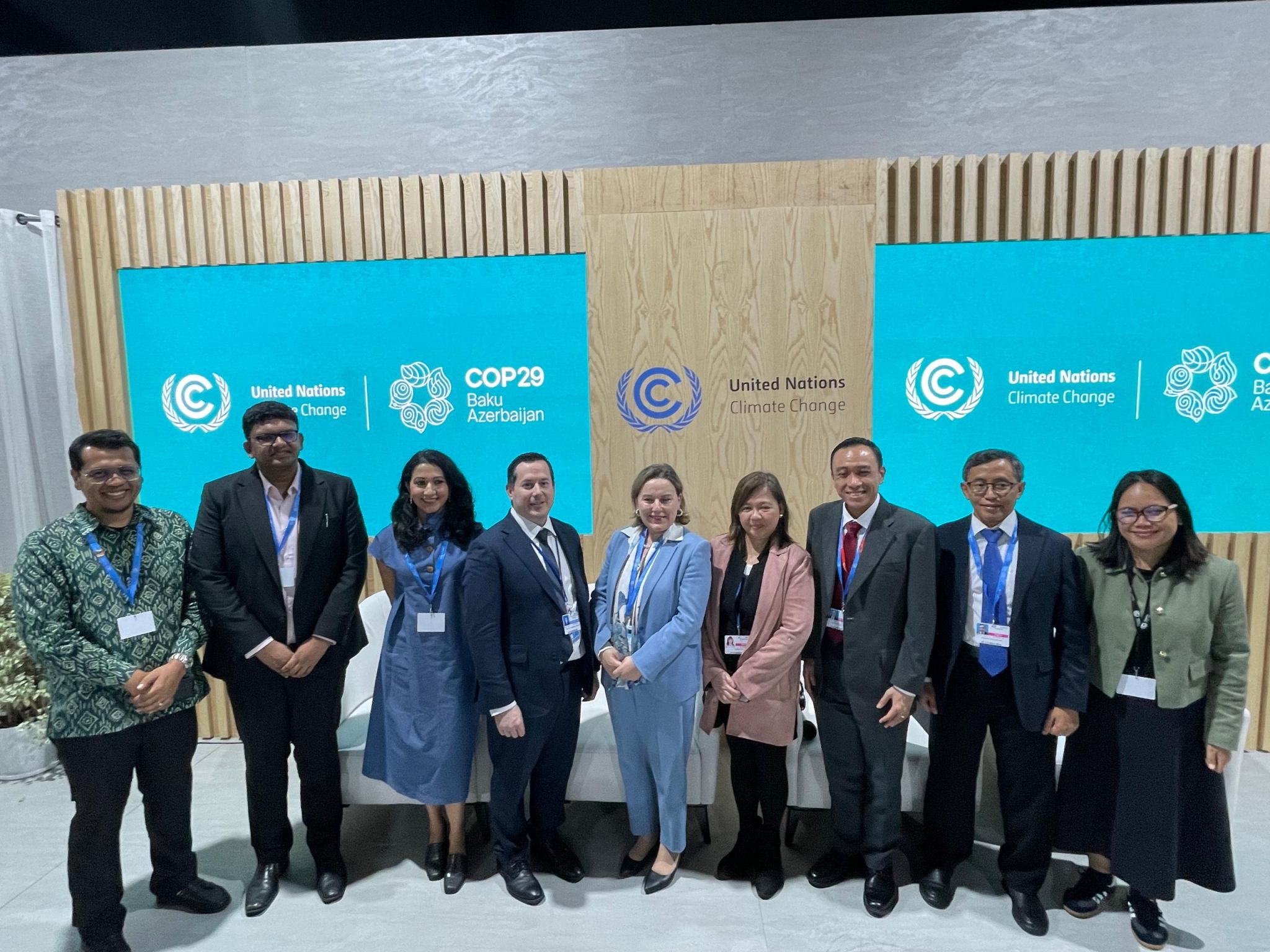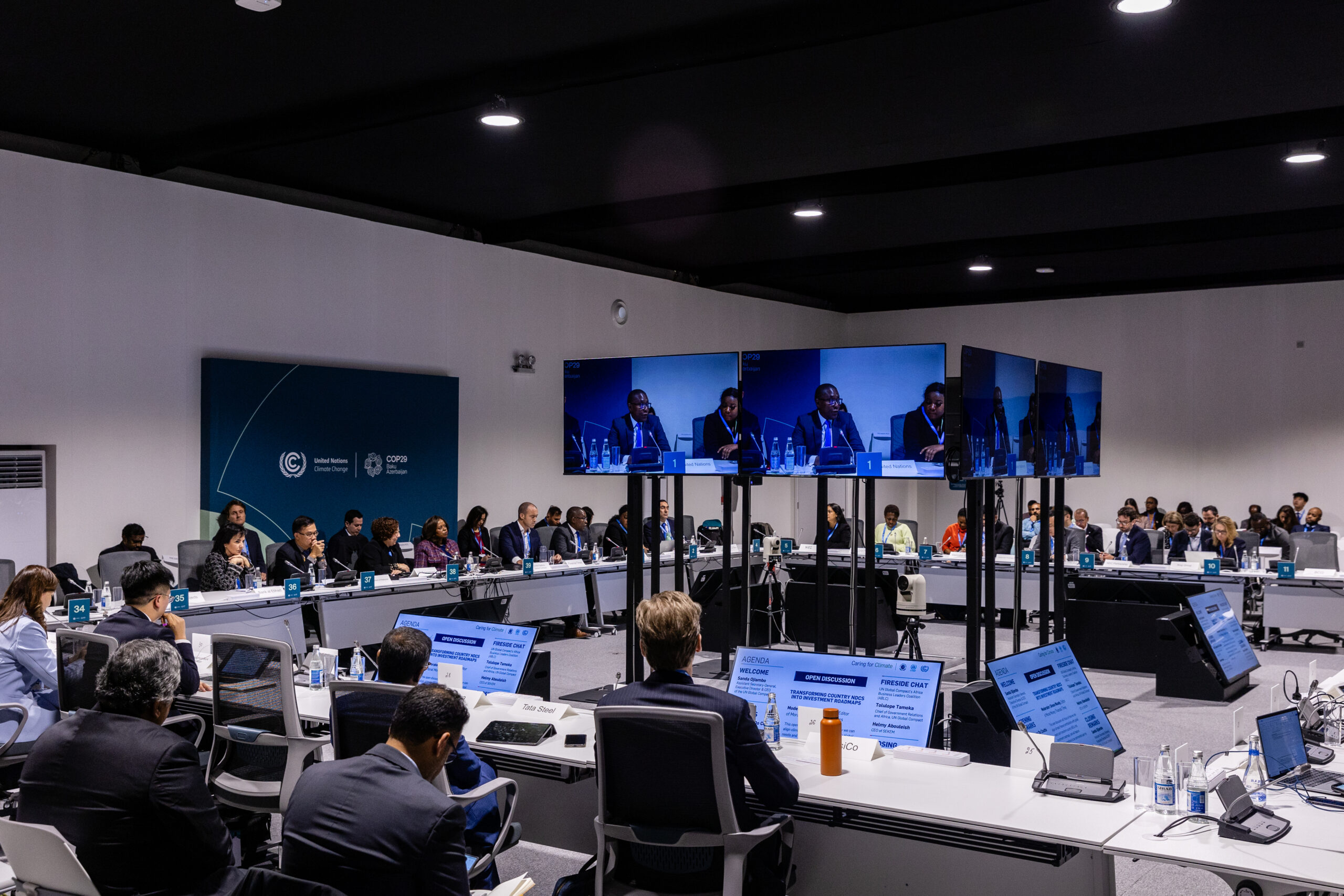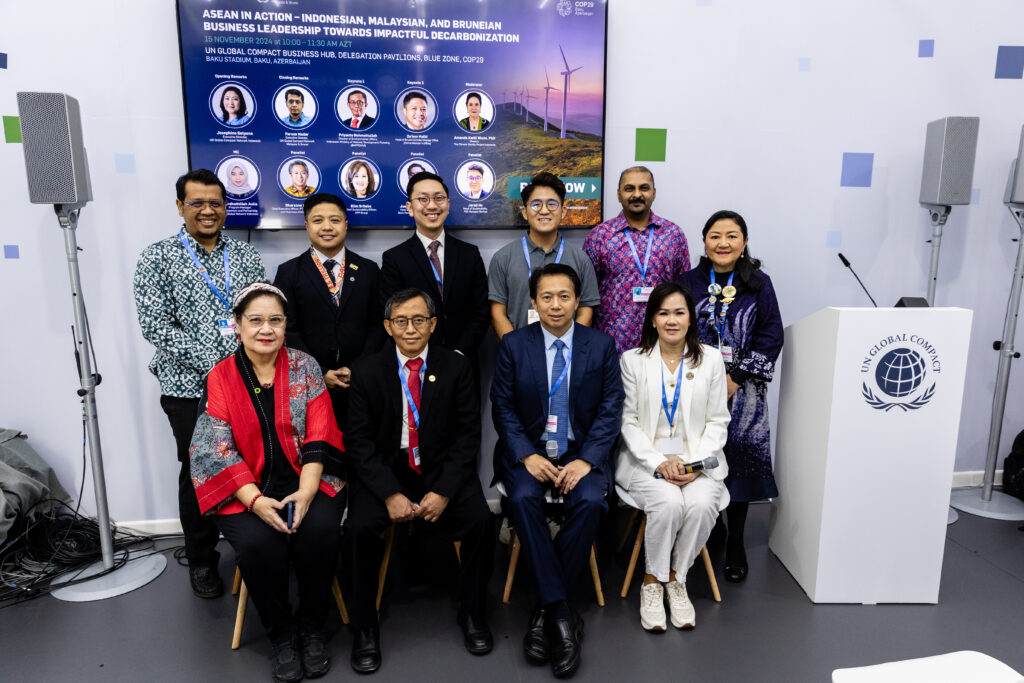
The joint session organized by the UN Global Compact Networks of Indonesia (IGCN) and Malaysia & Brunei (UNGCMYB) at COP29 highlighted the transformative role of ASEAN businesses in combating climate change. Under the theme “ASEAN in Action – Indonesian, Malaysian, and Bruneian Business Leadership Towards Impactful Decarbonization”, the event focused on showcasing innovative solutions, strategic collaborations, and the leadership potential of the region in achieving a low-carbon economy.
The session also underscored ASEAN’s unique position as a region of growing economies that are balancing the challenge of economic development with the imperative of climate action. While ASEAN nations continue their path toward economic improvement, they are also at the forefront of navigating the complexities of climate change mitigation and adaptation. As emerging economies, ASEAN faces the dual challenge of advancing growth while ensuring that development pathways are sustainable and aligned with global decarbonization goals.
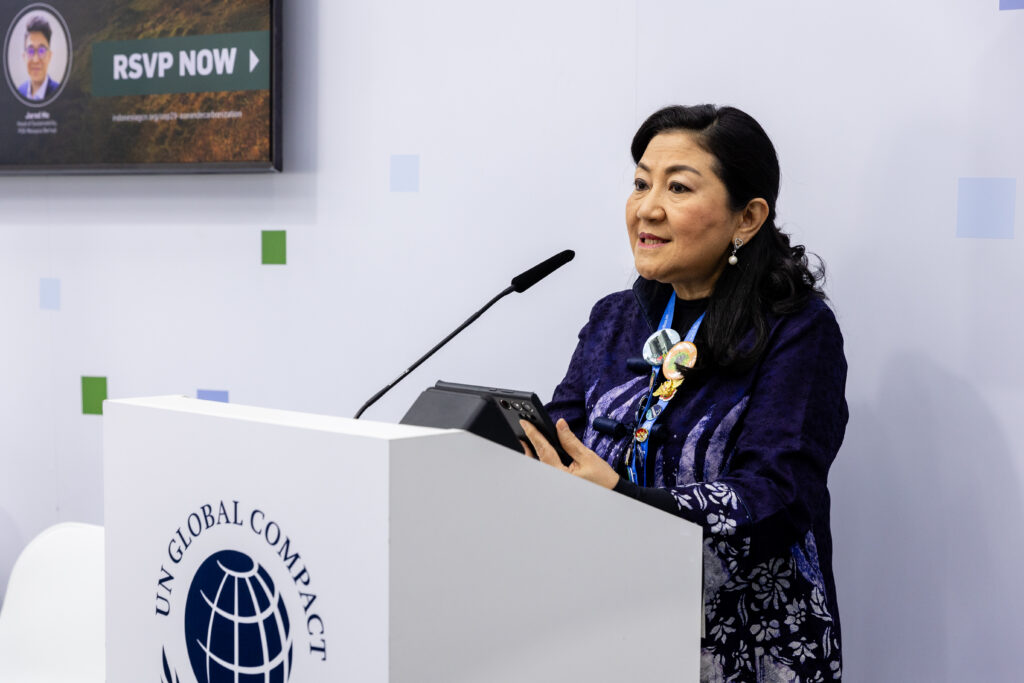
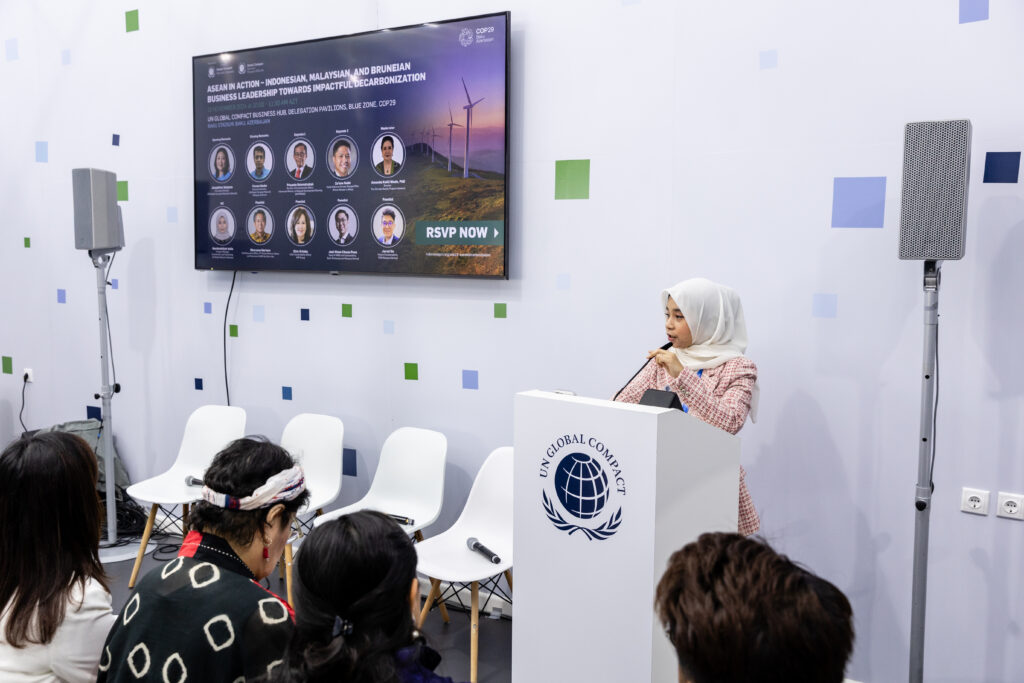
The session commenced with opening remarks by Josephine Satyono, the Executive Director of IGCN, who emphasized ASEAN’s pivotal role in global decarbonization efforts. She urged stakeholders to integrate sustainability into their core business strategies and leverage regional collaborations to drive impactful climate action. Following her remarks, Mardhathillah Aulia, Program Manager for Environment and Partnership at IGCN, introduced the session objectives and the distinguished panel of speakers.
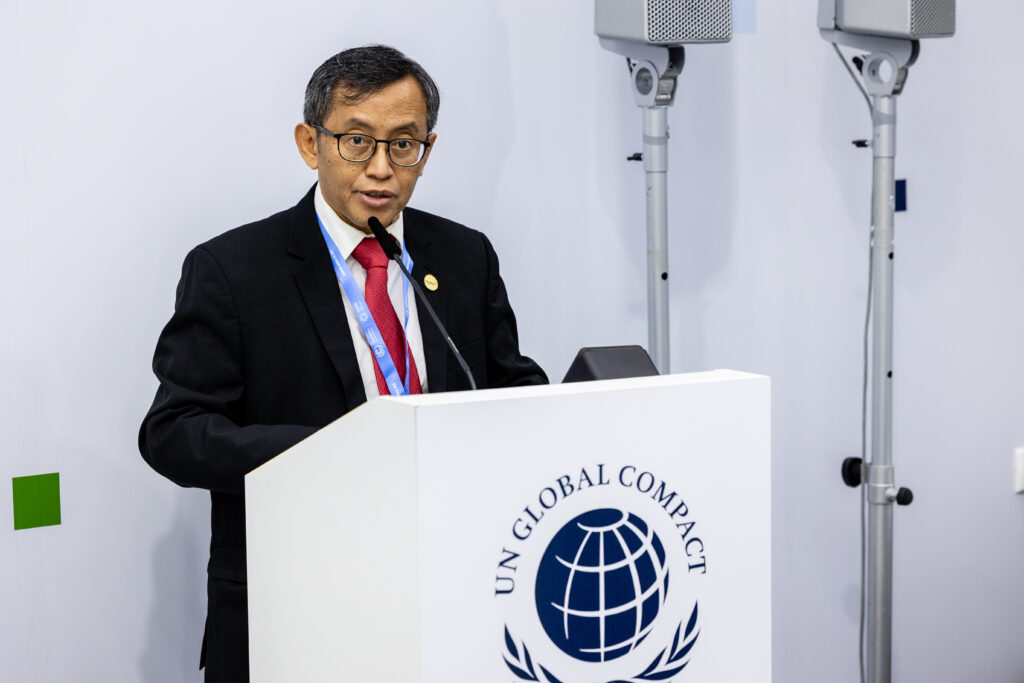
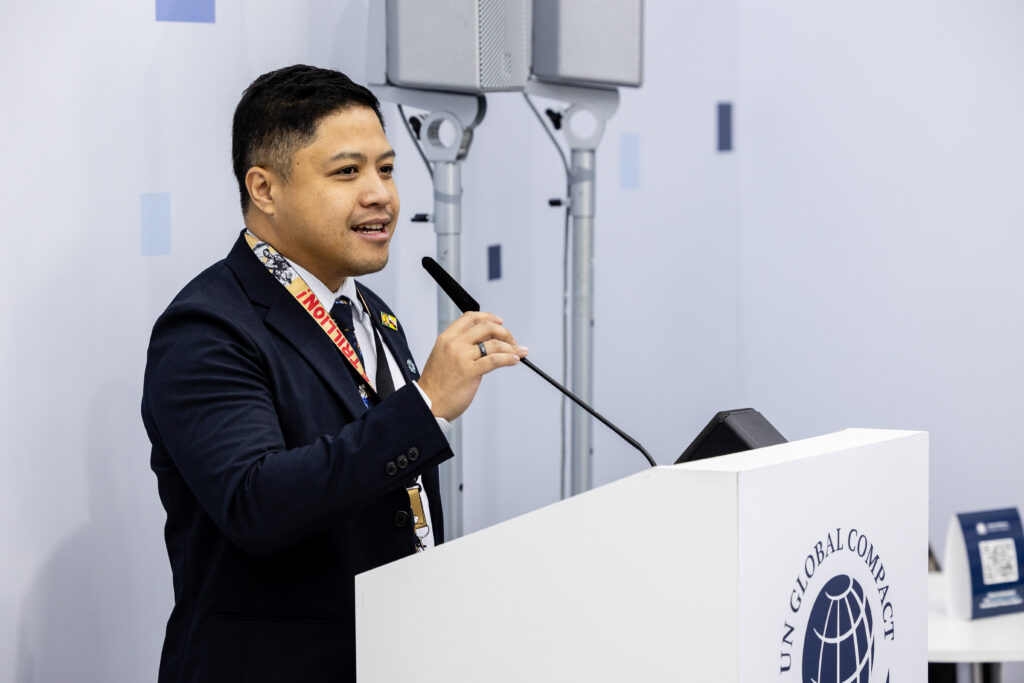
The keynote presentations provided compelling insights into national-level decarbonization strategies. Priyanto Rohmatullah, the Director of Environmental Affairs at the Indonesian Ministry of National Development Planning (Bappenas), discussed the integration of climate targets within Indonesia’s Vision 2045. He highlighted initiatives such as renewable energy transitions, mangrove reforestation, and peatland restoration while advocating for strengthened ASEAN-wide frameworks like the ASEAN Power Grid and unified carbon trading platforms. Za’iem Halbi, the Head of Brunei’s Climate Change Office, presented Brunei’s national strategies, emphasizing emissions reductions in key sectors and the nation’s commitment to net-zero targets. His speech underscored the importance of balancing economic growth with sustainability and fostering regional synergies for impactful climate action.
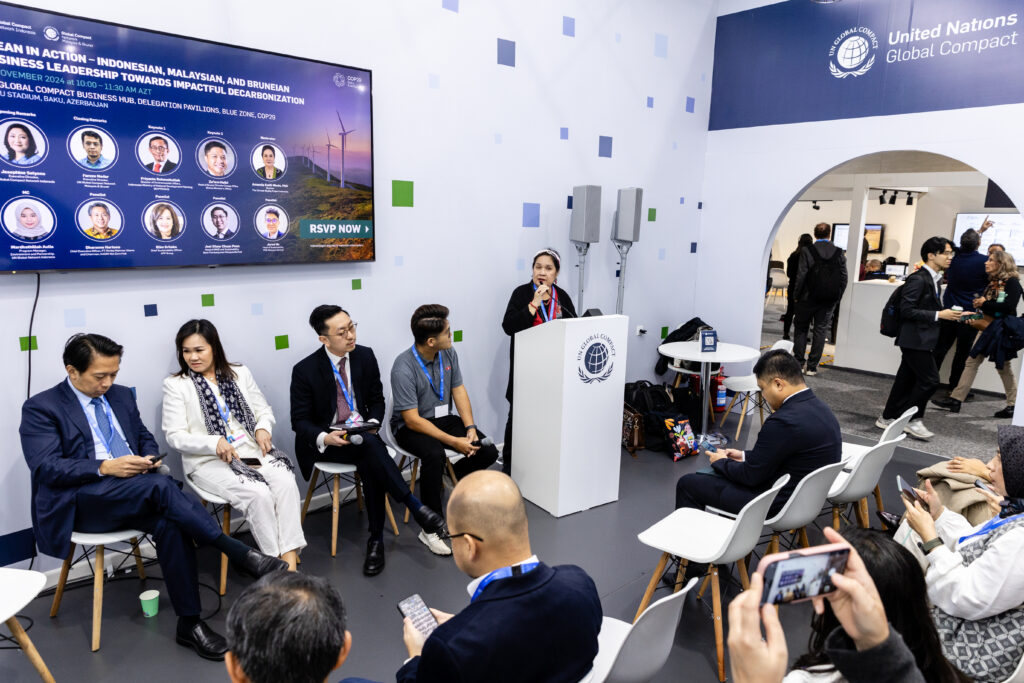
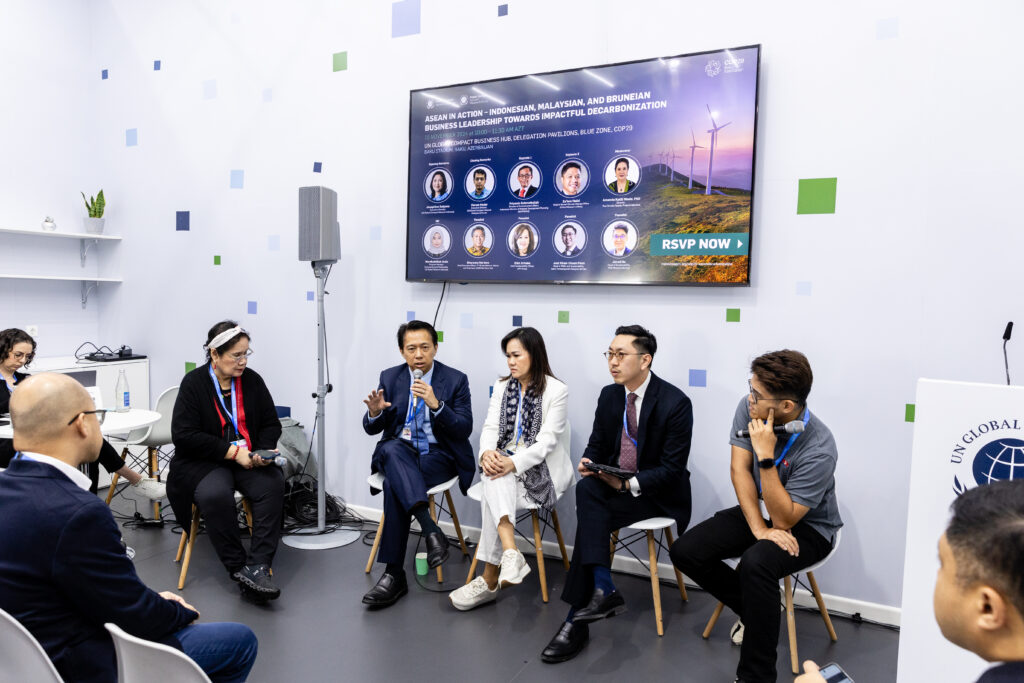
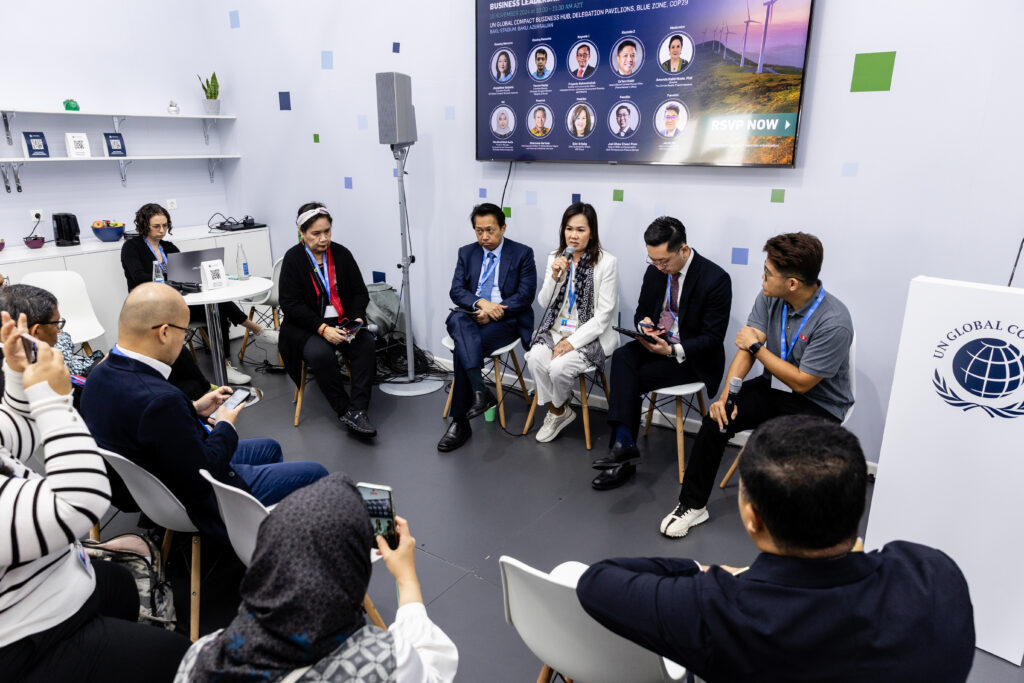
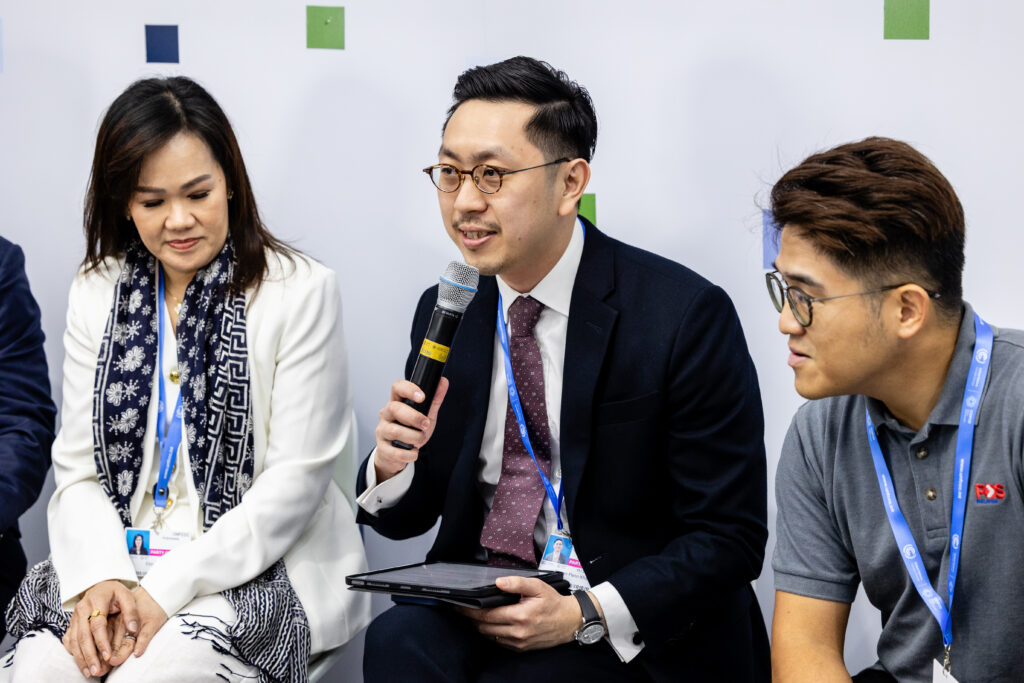

A dynamic panel discussion, moderated by Dr. Amanda Katili Niode of The Climate Reality Project Indonesia, brought together leading voices from the region to delve into practical decarbonization strategies and innovative solutions. Dharsono Hartono of PT Rimba Makmur Utama and KADIN Net Zero Hub showcased nature-based approaches and collaboration through KADIN Net Zero Hub. Elim Sritaba of APP Group elaborated on sustainable practices within the pulp and paper supply chain. Joel Khaw Chuan Penn from Bank Pembangunan Malaysia shared insights on financing impactful projects using BPMB’s Measuring Impact on National Development (MIND) framework and green finance initiatives. Jarod Ho of POS Malaysia discussed the decarbonization of logistics through electric vehicles and innovative delivery solutions.
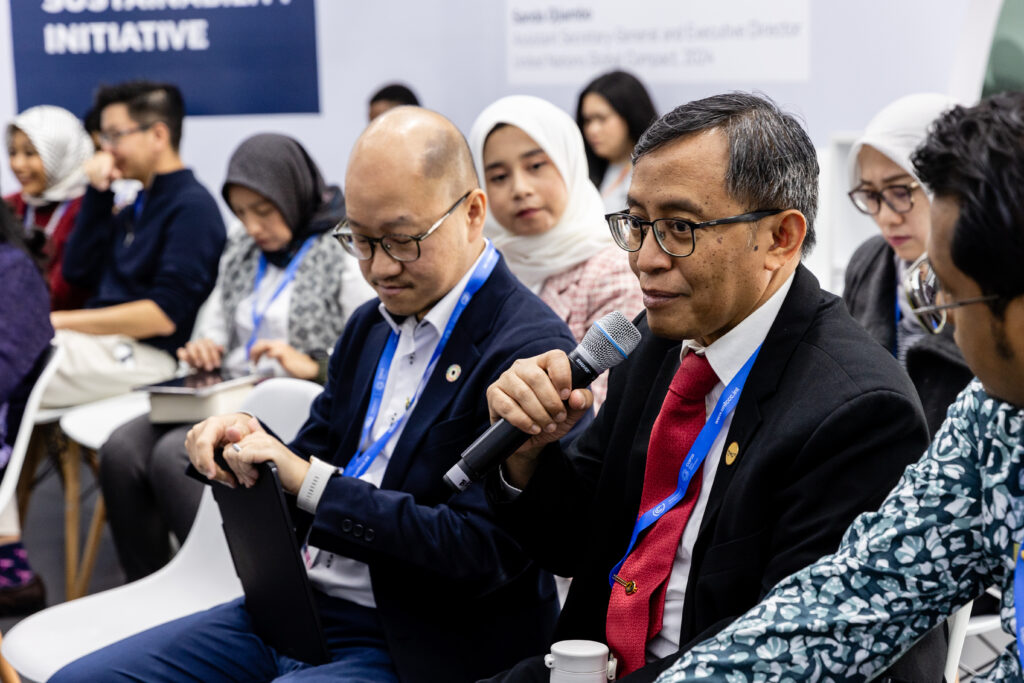
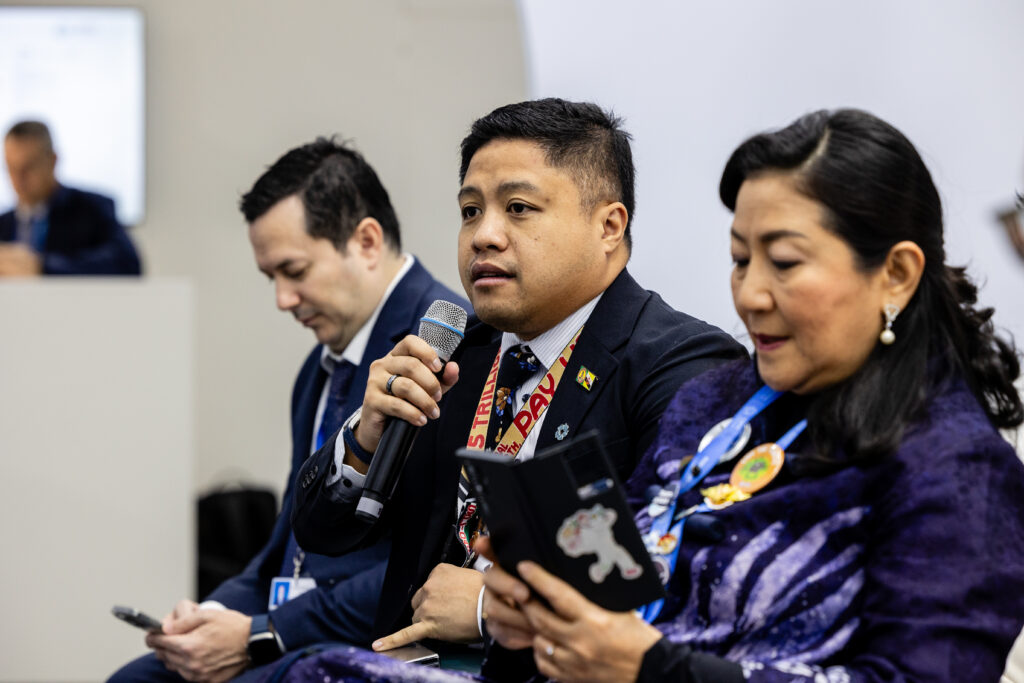
The session covered a range of critical topics, including decarbonization pathways, the potential of ASEAN’s collaborative frameworks, financial innovations to support sustainability, and the adoption of nature-based and technological solutions to address climate challenges. The discussions underscored the importance of leveraging partnerships, fostering innovation, and aligning regional efforts to create a unified ASEAN response to global decarbonization goals.
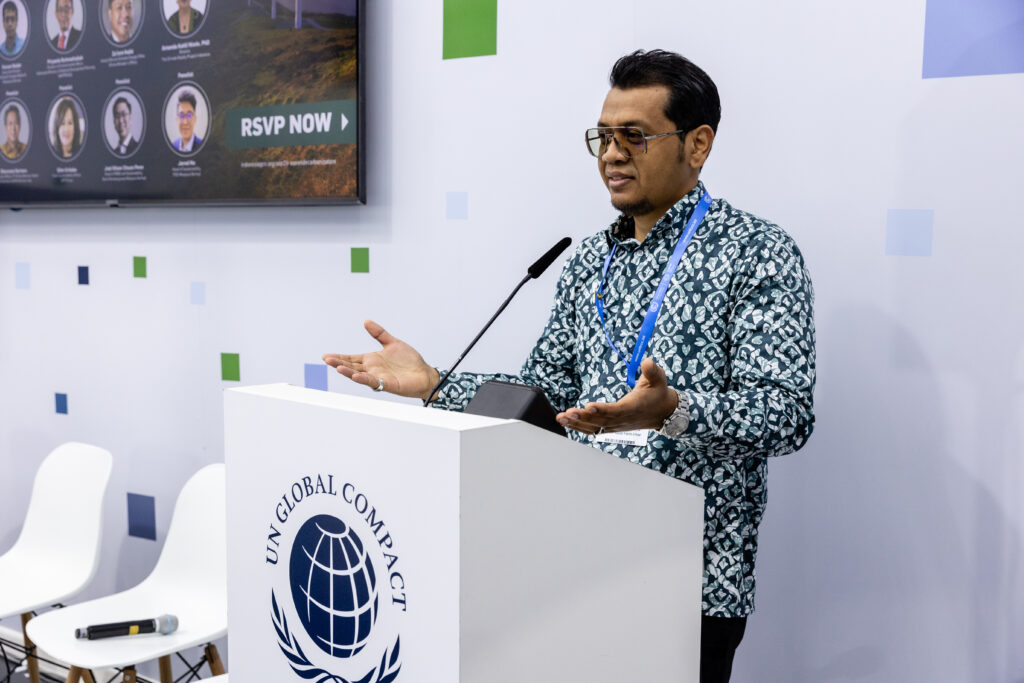
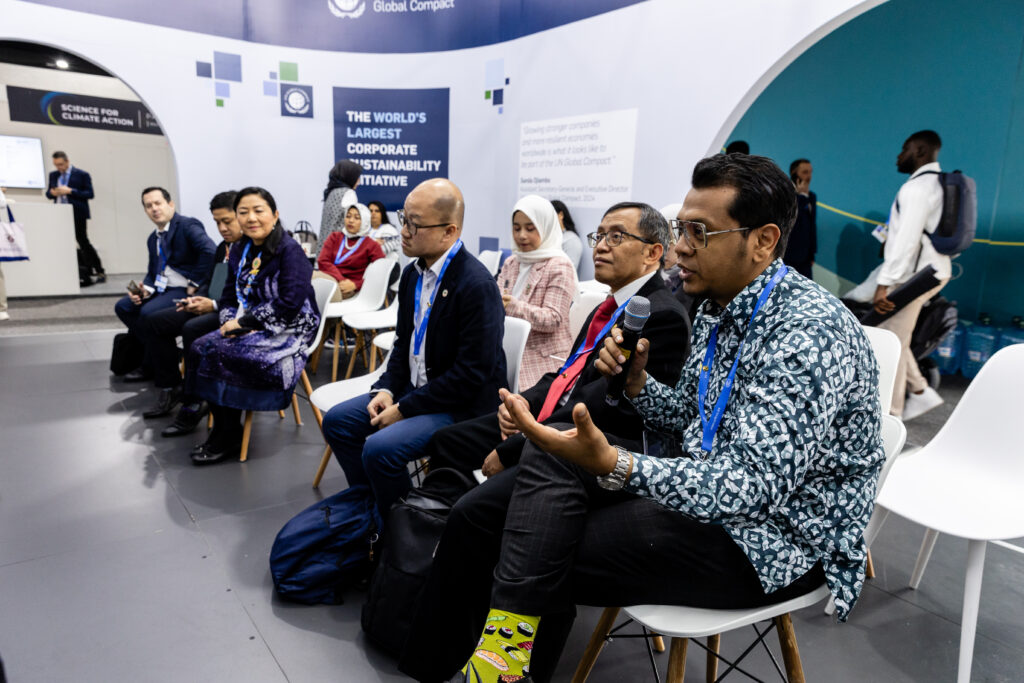
In his closing remarks, Faroze Nadar, the Executive Director of UNGCMYB, recapped the session’s key takeaways and emphasized the need for sustained, collective action to propel ASEAN into a leadership role in global sustainability. He encouraged businesses to prioritize innovation, collaboration, and the adoption of sustainable practices to achieve meaningful progress.
The session concluded with a call to action for all stakeholders. Participants were urged to strengthen cross-sector partnerships, utilize ASEAN’s platforms for coordinated action, and invest in innovative solutions to accelerate decarbonization. The discussions and insights shared during the event reinforced ASEAN’s position as a key player in shaping a sustainable future for the region and the world.


